EDITOR’S NOTE — In November 2023, Alabama Baptists will celebrate a huge milestone — 200 years of doing ministry together since the first group gathered and decided they could do more together than they could apart. To read more about the bicentennial celebration, click here.
For more than a decade, Pete Dunn and his wife, Pat, lived their lives out of five suitcases. And one of the places those suitcases landed was Jibla Baptist Hospital in Yemen.
“When the hospital administrator went home on furlough for a year, Pat and I filled in the gap,” said Dunn, a missionary emeritus with the International Mission Board who served in the Middle East for 33 years. “The first visitor I had in the door was Martha Myers.”
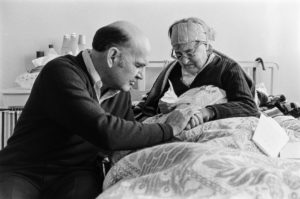
Myers — a doctor and IMB missionary from Alabama — wanted to talk to him about security at the hospital. She knew there were threats floating around outside its walls.
“The mosque in a major town close to Jibla [sent out a message] every Friday on a PA system — ‘There is a satan among us; her name is Martha Myers,’” Dunn said.
But even though she was aware of the threats, they didn’t stop her from doing the very thing that had raised her profile, he said.
She would get into an old four- wheel drive Land Rover, use her own money to buy medicine and food and drive into remote areas where there were hardly any roads.
Serving the people
“She’d go to a little village and tend to the sick folks and feed those who were hungry,” Dunn said. “Sometimes she’d get in late at night. Sometimes she wouldn’t get in at all — she’d spend the night on the road. That was her attitude; she was there to serve the people.”
Myers was humble, he said, and any money she got, she turned around and gave it away. Sometimes she didn’t have enough food to feed herself. Because of this, she was well known — and well loved. There may have been some who sought her for nefarious reasons, but the vast majority who sought her just wanted her help.
“People would come into the hospital clinic looking for her because she had such deep compassion for people who were sick and hurting,” Dunn said.
But in 2002 — a year or two after Dunn and his wife left Yemen — he got a call that an extremist had come into the hospital looking for Myers with a gun in his hand. The gunman ended her life and the life of two others.
“I remember saying, ‘Not Martha Myers,’” Dunn said. “I think she probably had more Bible studies going across the mountainous regions of Yemen than anybody else. She knew people needed help and hope, and she went. She was an example of the Lord Jesus at work.”
He said something very similar to that when he spoke at one of her memorial services. So did Pastor Rick Evans back at her home church, Dalraida Baptist in Montgomery.
“Martha was a victorious Christian and was obedient until death,” Evans said Jan. 4, 2003, at a service filled with 1,200 people.
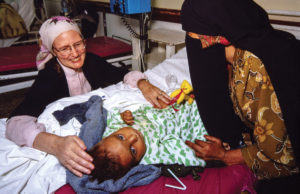
And Myers’ legacy lives on. She’s been memorialized in a number of ways after her death, including a statue in the Samford University library in Birmingham, induction into the Alabama Women’s Hall of Fame and most recently as one of the namesakes of the Myers-Mallory State Missions Offering, which was founded in 2016.
Rosalie Hunt, an IMB missionary emeritus and missions author from Alabama, said it’s a wonderful blessing for Christ-followers in the state to have heroes like Myers and Kathleen Mallory, another missions force from Alabama, to look to as examples.
“Just about everybody likes to be a part of something important,” Hunt said. “Maybe that is why we join causes. From the time we are young, we learn to look up to certain people.”
She said, “Those earthly models reflect what we most admire and believe in. … They embody Christlike virtues.
“Those heroes inspire us, spur us on to be the best we can be. Missions heroes are a vital part of our own missions inspiration,” Hunt said. “Those like Kathleen Mallory and Martha Myers give us standards of excellence toward which to strive. We realize that we serve the same Lord they served and He can enable us in service, even as He did those two amazing women.”
‘A great debt’
Mallory, the other namesake of the offering, was born and raised in Selma. She was one of the early leaders of Woman’s Missionary Union. She served as superintendent of Dallas County WMU and as secretary-
treasurer of national WMU.
She promoted work with every ethnic group and taught that every woman ought to be a soul winner and a generous giver.
“During her tenure, she saved the Foreign Mission Board (now the IMB) and the Home Mission Board (now North American Mission Board) from bankruptcy,” Hunt said in an interview in 2020 when she released her book, “Guided by Grace: The Kathleen Mallory Story.”
“She kept WMU and basically the Southern Baptist Convention solvent through the Great Depression, World War I and World War II,” Hunt said. “We owe her a great debt of gratitude. So much of what we do now is on the foundation which she laid for us all those years ago.”
Candace McIntosh, Alabama WMU executive director, said Alabama is blessed with a number of people who could be called “missions heroes.”
‘Many, many others’
“To be one of the smaller states and maybe not as wealthy as some, we have had a number of missions personnel sent out from churches,” she said, starting with Eliza Sexton Shuck, Alabama Baptists’ first international missionary, sent to China in 1847.
McIntosh said when she thinks of missions heroes, in addition to Myers and Mallory, she thinks of Dunn, who with his late wife, Pat, served for 11 years before they saw the first person come to faith.
She said she also thinks of Mary Essie Stephens, who guided Alabama WMU through some difficult times; Beverly Sutton Miller, who faithfully led in Stephens’ footsteps; Bob and Mavis Hardy, early missionaries to Japan; and Stuart Calvert and Barbara Joiner, who were well-loved missions authors.
“And there are many, many others,” McIntosh said.
All of their contributions matter to the missions cause, she said. “Truly we stand on the shoulders of our missions heroes who by their actions through faith have forged the way forward for the work that takes place today among the unreached across our nation and world.”

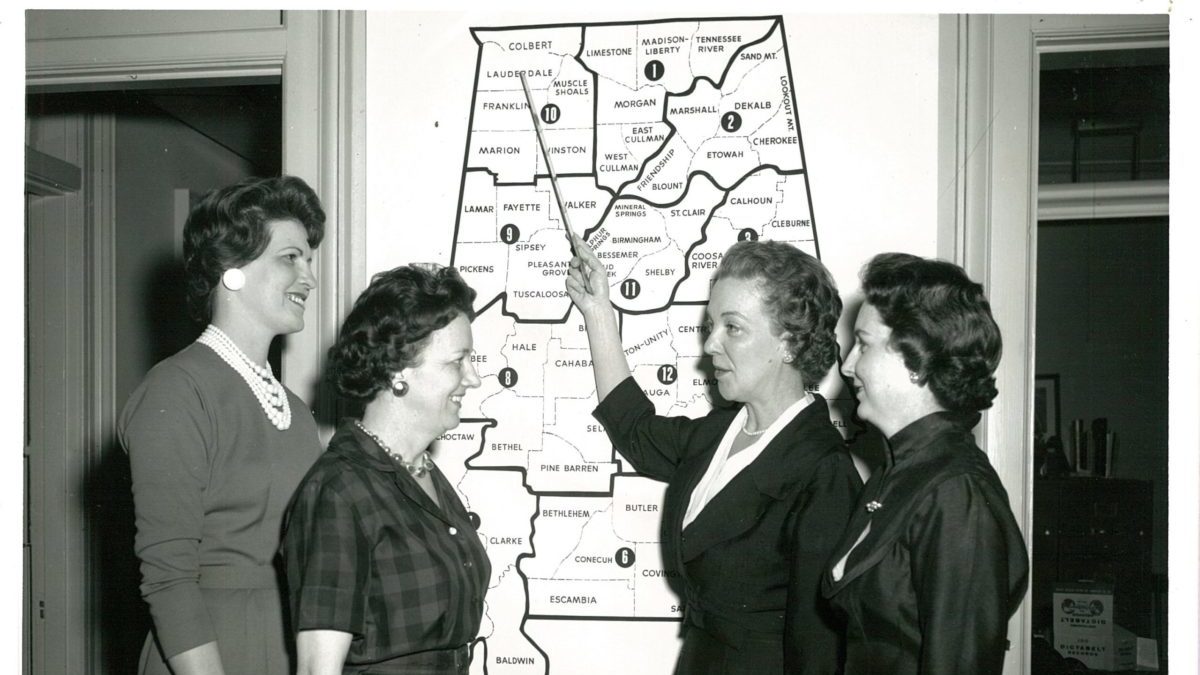
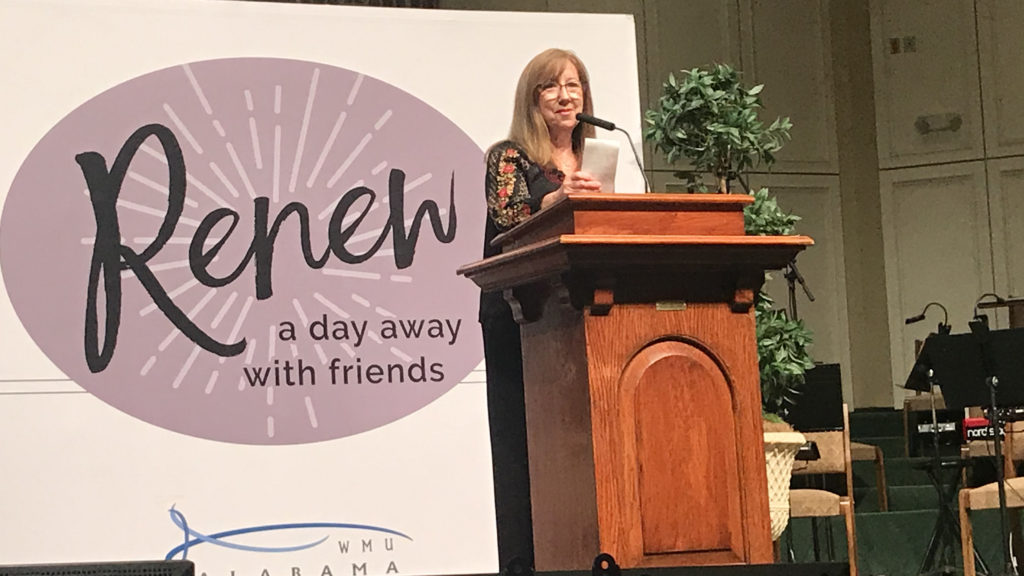
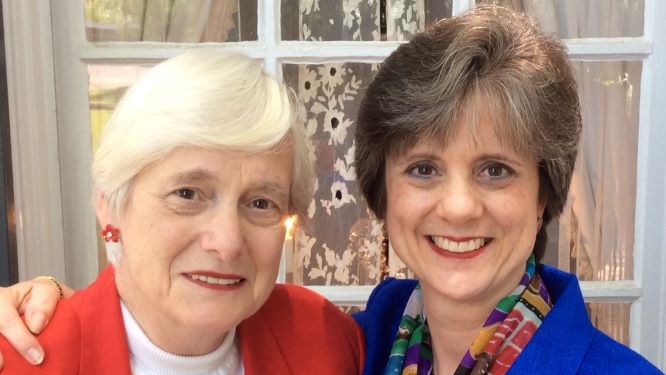

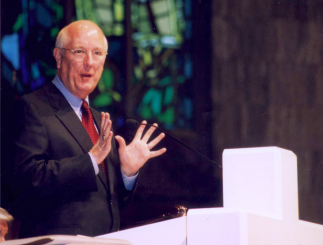
Share with others: